- Home
- Roddy Doyle
Paddy Clarke Ha Ha Ha Page 3
Paddy Clarke Ha Ha Ha Read online
Page 3
I was good at swimming.
Sinbad wouldn’t get in unless our ma was with him.
Kevin once dived off the jetty and split his head. He had to go into Jervis Street for stitches. He went in a taxi with his ma and his sister.
Some of us weren’t allowed to swim down at the seafront. If you cut your toe on a rock you’d get polio. A boy from Barrytown Drive, Seán Rickard, died and it was supposed to have been because he’d swallowed a mouthful of the seafront water. Someone else said he’d swallowed a gobstopper and it got caught in his windpipe.
—He was by himself in his bedroom, said Aidan.—And he couldn’t slap his back to get it up.
—Why didn’t he go down to the kitchen?
—He couldn’t breathe.
—I can slap mine, look it.
We looked at Kevin thumping his back.
—Not hard enough, said Aidan.
We all tried it.
—It’s a load of rubbish, said my ma.—Don’t mind them.
She spoke softer.
—The poor little lad had leukaemia.
—What’s leukaemia?
—A disease.
—Can you get it from swallowing water?
—No.
—How?
—Not from water.
—Sea water?
—No kind of water.
The seafront water was grand, my da said. The Corporation experts had tested it and it was perfect.
—There, said my mother.
My Granda Finnegan, her father, worked in the Corporation.
The teacher we had before Henno, Miss Watkins, brought in a tea-towel with the Proclamation of Independence on it because it was fifty years after 1916. It had the writing part in the middle and the seven men who’d signed it around the sides. She stuck it up over the blackboard and let us up to see it one by one. Some of the boys blessed themselves in front of it.
—Nach bhfuil sé go h’alainn,1 lads? she kept saying after every couple of boys went past.
—Tá,2 we said back.
I looked at the names at the bottom. Thomas J. Clarke was the first one. Clarke, like my name.
Miss Watkins got her bata3 and read the proclamation out for us and pointed at each word.
—In this supreme hour the Irish nation must, by its valour and discipline, and by the readiness of its children to sacrifice themselves for the common good, prove itself worthy of the august destiny to which it is called. Signed on behalf of the provisional government, Thomas J. Clarke, Seán Mac-Diarmada, Thomas MacDonagh, P. H. Pearse, Eamonn Ceannt, James Connolly, Joseph Plunkett.
Miss Watkins started clapping, so we did as well. We started laughing. She stared at us and we stopped but we kept clapping.
I turned back to James O’Keefe.
—Thomas Clarke is my granda. Pass it on.
Miss Watkins rapped the blackboard with the bata.
—Seasaígí suas.4
She made us march in step beside our desks.
—Clé—deas—clé deas—clé—5
The walls of the prefab wobbled. The prefabs were behind the school. You could crawl under them. The varnish at the front of them was all flaky because of the sun; you could peel it off. We didn’t get a room in the proper school, the cement one, until a year after this, when we got changed to Henno. We loved marching. We could feel the boards hopping under us. We put so much effort into slamming our feet down that we couldn’t keep in time. She made us do this a couple of times a day, when she said we were looking lazy.
While we marched this time Miss Watkins read the proclamation.
—Irishmen and Irishwomen: In the name of God and of the dead generations from which she receives her old tradition of nationhood, Ireland, through us, summons her children to her flag and strikes for her freedom.
She had to stop. It wasn’t proper marching any more. She hit the blackboard.
—Suígí síos.6
She looked annoyed and disappointed.
Kevin put his hand up.
—Miss?
—Sea?7
—Paddy Clarke said his granda’s Thomas Clarke on the tea-towel, Miss.
—Did he now?
—Yes, Miss.
—Patrick Clarke.
—Yes, Miss.
—Stand up till we see you.
It took ages for me to get out of my desk.
—Your grandfather is Thomas Clarke?
I smiled.
—Is he?
—Yes, Miss.
—This man here?
She pointed at Thomas Clarke in one of the corners of the tea-towel. He looked like a granda.
—Yes, Miss.
—Where does he live, tell us?
—Clontarf, Miss.
—Where?
—Clontarf, Miss.
—Come up here to me, Patrick Clarke.
The only noise was me on the floorboards.
She pointed to a bit of writing under Thomas Clarke’s head.
—Read that for us, Patrick Clarke.
—Ex—eh—executed by the British on 3 May, 1916.
—What does Executed mean, Dermot Grimes who’s picking his nose and doesn’t think I can see him?
—Kilt, Miss.
—That’s right. And this is your grandfather who lives in Clontarf, is it, Patrick Clarke?
—Yes, Miss.
I pretended to look at the picture again.
—I’ll ask you again, Patrick Clarke. Is this man your grandfather?
—No, Miss.
She gave me three on each hand.
When I got back to the desk I couldn’t put the seat down; my hands couldn’t do anything. James O’Keefe pushed the seat down for me with his foot. It made a bang; I thought she’d get me again. I put my hands under my legs. I didn’t crouch: she wouldn’t let us. The pain was like my hands had dropped off; it would soon become more of a wet sting. The palms were beginning to sweat like mad. There was no noise. I looked over at Kevin. I grinned but my teeth chattered. I saw Liam turn round at the front of the row, waiting for Kevin to look his way, waiting to grin for him.
I liked my Granda Clarke, much more than Granda Finnegan. Granda Clarke’s wife, my Grandma, wasn’t alive any more.
—She’s up in heaven, he said,—having a great time.
He gave me half a crown when we went to see him or when he came to see us. He once came on a bike.
I was messing through the drawers in the sideboard one night when Mart and Market was on the television. The bottom drawer was so full of photographs that when I was sliding the drawer back in some of the photographs on the top of the pile fell out the back onto the floor under the sideboard. I got them out from under there. One of them was of Granda and Grandma Clarke. We hadn’t been to his house in ages.
—Dad?
—Yes, son?
—When are we going to Granda Clarke’s?
My da looked like he’d lost something, then found it, but it wasn’t what he’d wanted.
He sat up. He looked at me for a while.
—Granda Clarke’s dead, he said.—Do you not remember?
—No.
I couldn’t.
He picked me up.
My da’s hands were big. The fingers were long. They weren’t fat. I could make out the bone under the skin and the flesh. He had one of his hands dangling over the chair. He was holding his book with his other hand. His nails were clean—except for one—and the white bits at the top were longer than mine. The wrinkles at his knuckles were a bit like the design of a wall, the cement between the bricks up and across. There weren’t many other wrinkles but the pores were like hollows, with a hair for every pore. Dark hair. Hair came out from under his cuff.
The Naked and the Dead. That was what the book was called. There was a soldier on the cover with his uniform on. His face was dirty. He was American.
—What’s it about?
He looked at the cover.
—War, he said.
—Is
it any good? I said.
—Yes, it is, he said.—It’s very good.
I nodded at the cover.
—Is he in it?
-Yes.
—What’s he like?
—I haven’t got to him. I’ll let you know.
World War Three Looms Near.
I got the paper every day for my da when he’d get home from work, and at the same time on Saturdays. Ma gave me the money; the Evening Press.
World War Three Looms Near.
—Does Looms mean Coming? I asked my ma.
—I think so, she said.—Why?
—World War Three’s coming near, I told her.—Look.
She looked at the headline.
—Oh dear, she said.—That’s just newspapers. They exaggerate things.
—Will we be in the war? I asked her.
—No, she said.
—Why not?
—Because there won’t be one, she said.
—Were you alive in World War Two? I asked her.
—Yes, she said.—Indeed I was.
She was making the dinner; she put on her busy look.
—What was it like?
—It wasn’t too bad, she said.—You’d have been disappointed, Patrick. Ireland wasn’t really in the war.
—Why not?
—Oh, it’s complicated; we just weren’t. Your daddy will tell you.
I was waiting for him. He came in the back door.
-Look.
World War Three Looms Near.
He read it.
—World War Three looms near, he said.—Looms, no less.
He didn’t seem fussed.
—Have you your gun ready, Patrick? he said.
—Ma said there won’t be a war, I said.
—She’s right.
—Why?
He sometimes liked these questions, and sometimes he didn’t. When he did he folded his legs if he was sitting down and leaned a bit to the side into his chair. That was what he did now, leaned nearer to me. I couldn’t hear him for the first bit because it had been what I’d hoped he’d do—fold his legs and lean over - and it had happened the way I’d wanted it to.
between the Israelis and the Arabs, I heard.
—Why?
—They don’t like one another, he said,—basically. The same old story, I’m afraid.
—Why does the paper say about World War Three? I asked him.
—To sell papers, first, he said.—A headline like that sells papers. But as well, the Americans are backing the Jews and the Russians are backing the Arabs.
—The Jews are the Israelis.
—Yeah, that’s it.
—Who are the Arabs?
—Everyone else. All their neighbours. Jordan, Syria—
—Egypt.
—Good man, you know your stuff.
—The Holy Family went to Egypt when Herod was after them.
—That’s right. There’s always work for carpenters.
I didn’t get it, fully, what he’d said, but it was the kind of thing that Ma didn’t like him saying. She wasn’t there though, so I laughed.
—And the Jews are winning, said my da.—Against all the odds. Good luck to them.
—Jews go to mass on Saturdays, I told my da.
—That’s right, he said.—In synagogues.
—They don’t believe in Jesus.
—That’s right.
—Why don’t they?
—Ah now.
I waited.
—People believe different things.
I wanted more than that.
—Some believe in God, others don’t.
—Communists don’t, I said.
—That’s right, he said.—Who told you that?
—Mister Hennessey.
—Good man, Mister Hennessey, he said.
I knew by the way he said the next thing that it was a part of a poem; he did that sometimes.
—And still they gazed and still their wonder grew that one small head could carry all it knew. Some people believe that Jesus was the son of God and others don’t.
—You do, don’t you?
—Yes, he said.—I do. Why? Was Mister Hennessey asking you?
—No, I said.
His face changed.
—The Israelis are a great people, he said.—Hitler tried to exterminate them, nearly did, and look at them now. Outnumbered, out-gunned, out-everythinged and they’re still winning. Sometimes I think we should move there, to Israel. Would you like that, Patrick?
—I don’t know. Yeah, I might.
I knew where Israel was. It was shaped like an arrow.
—It’s hot there, I said.
—Ummm.
—It snows in the winter though.
—Yep. A nice mix. Not like here, all rain.
—They don’t wear shoes, I said.
—Do they not?
—Sandals.
—Like what’s his name, your man—
—Terence Long.
—That’s right. Terence Long.
We both laughed.
—Terence Long -
Terence Long -
Wears no socks—
What a pong.
—Poor oul’ Terence, said my da.—Up the Israelis, anyway.
—What was World War Two like? I asked him.
—Long, he said.
I knew the dates.
—I was a kid when it started, he said.—And I was nearly finished with school when it ended.
—Six years.
—Yep. Long ones.
—Mister Hennessey said he never saw a banana till he was eighteen.
—I’d believe him.
—Luke Cassidy got into trouble. He asked him what the monkeys ate during the war.
—What happened to him? said Da when he’d stopped laughing.
—He hit him.
He said nothing.
-Six.
-Rough.
—Luke didn’t even think it up for himself. Kevin Conroy told him to say it.
—Serves him right then.
—He was crying.
—All because of bananas.
—Kevin’s brother’s joining the F.C.A., I said.
—Is that right? That’ll straighten his back for him.
I didn’t get it. His back was straight already.
—Were you ever in it?
—The F.C.A.?
—Yeah.
—No.
—During the—
—My father was in the L.D.F.
—What’s that?
—Local Defence Force.
—Did he have a gun?
—I suppose so. Not at home; I think anyway.
—I’m going to join them when I’m old enough. Can I?
—The F.C.A.?
—Yeah. Can I?
—Sure.
—Was Ireland ever in a war?
—No.
—What about the Battle of Clontarf?
He laughed, I waited.
—That wasn’t really a war, he said.
—What was it then?
—A battle.
—What’s the difference?
—Well, let’s—Wars are long—
—And battles are short.
—Yes.
—Why was Brian Boru in a tent?
—He was praying.
—In a tent though. You don’t pray in a tent.
—I’m hungry, he said.—What about yourself?
—Yeah.
—What are we having; any idea?
—Mince.
—Righto.
—How goes gas kill you?
—It poisons you.
—How?
—You’re not supposed to breathe it. Your lungs can’t cope. Why?
—The Jews, I said.
—Oh, he said.—Yes.
—If Ireland was in a war would you go into the army?
—It won’t be.
—It might be, I said.
&nbs
p; —No, he said.—I don’t think so.
—World War Three looms near, I said.
—Don’t mind that, he said.
—Would you?
—Yes, he said.
—So would I.
-Good. And Francis.
—He’s too young, I said.—They wouldn’t let him.
—There won’t be a war, he said.—Don’t worry.
—I’m not, I said.
—Good.
—We were in a war against the English, weren’t we?
—Yes.
—That was a war, I said.
—Well, it wasn’t really—I suppose it was.
—We won.
—Yes. We murdered them. We gave them a hiding they’ll never forget.
We laughed.
We had our dinner. It was lovely. The mince wasn’t too runny. I sat in the chair beside Da, Sinbad’s chair. Sinbad said nothing.
—It’s not Adidas. It’s Ad-dee-das.
—It’s not. It’s Adidas.
—It isn’t. It’s eee.
—i.
—eee.
—i.
—Spa-face; it’s eeeeeeee.
—iiiiiiii.
None of us had Adidas football boots. We were all getting them for Christmas. I wanted the ones with the screw-on studs. I put that in my letter to Santy but I didn’t believe in him. I only wrote to him because my ma told me to, because Sinbad was writing to him. Sinbad wanted a sleigh. Ma was helping him to write his letter. Mine was finished. It was in the envelope but she wouldn’t let me lick the flap yet because Sinbad’s letter had to go in as well. It wasn’t fair. I wanted an envelope of my own.
—Stop whinging, she said.
—I’m not whinging.
—Yes, you are; stop it.
I wasn’t whinging. Putting two letters in one envelope was stupid. Santy would think it was only one letter and he’d just bring Sinbad’s present and not mine. I didn’t believe in him anyway. Only kids believed in him. If she said I was whinging again I’d say that, and then she’d have to spend all day making Sinbad believe in him again.
—I don’t know if Santy brings sleighs to Ireland, she told Sinbad.
—Why doesn’t he?
—Because there’s hardly ever any snow, she said.—You wouldn’t get a chance to use it.
—There’s snow in winter, said Sinbad.
—Only sometimes.
—Up the mountains.
—That’s miles away, she said.—Miles.

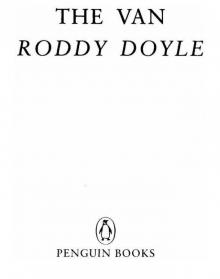 The Van
The Van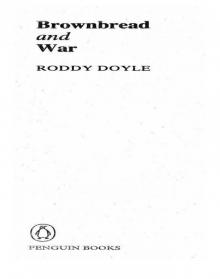 Brownbread & War
Brownbread & War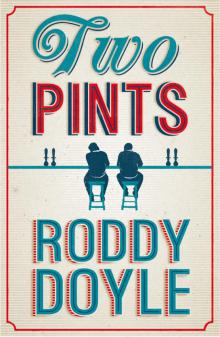 Two Pints: A Collection
Two Pints: A Collection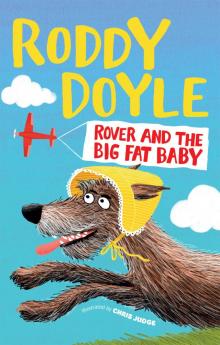 Rover and the Big Fat Baby (Giggler 4)
Rover and the Big Fat Baby (Giggler 4)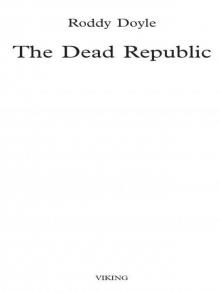 The Dead Republic
The Dead Republic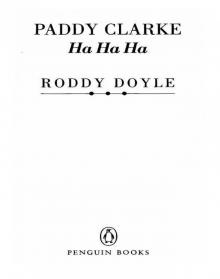 Paddy Clarke Ha Ha Ha
Paddy Clarke Ha Ha Ha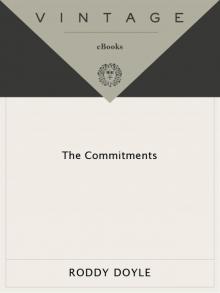 The Commitments
The Commitments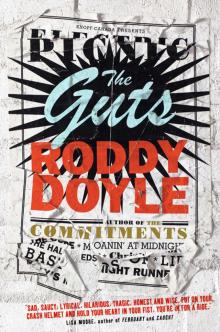 The Guts
The Guts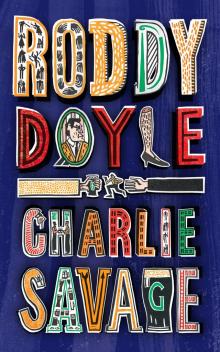 Charlie Savage
Charlie Savage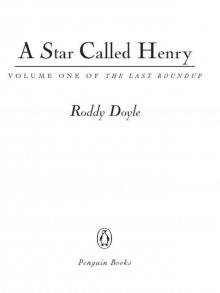 A Star Called Henry
A Star Called Henry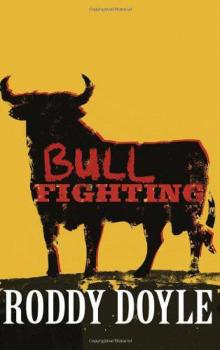 Bullfighting: Stories
Bullfighting: Stories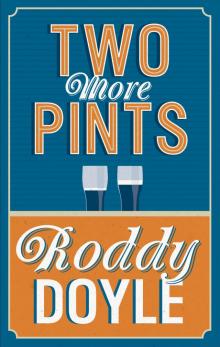 Two More Pints
Two More Pints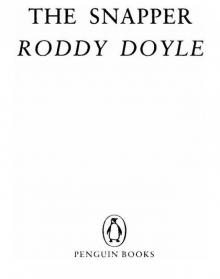 The Snapper
The Snapper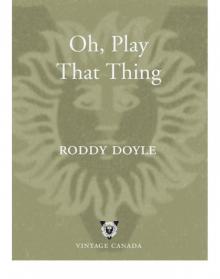 Oh, Play That Thing
Oh, Play That Thing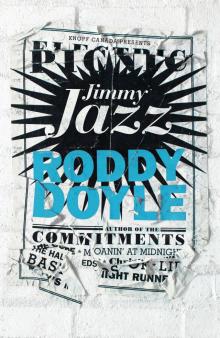 Jimmy Jazz
Jimmy Jazz Paula Spencer
Paula Spencer Wilderness
Wilderness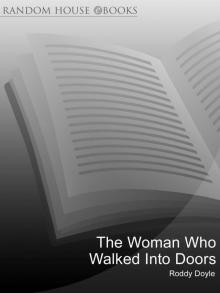 The Woman Who Walked Into Doors
The Woman Who Walked Into Doors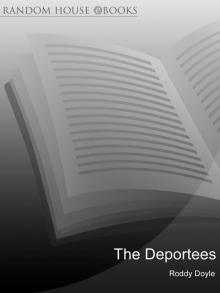 The Deportees
The Deportees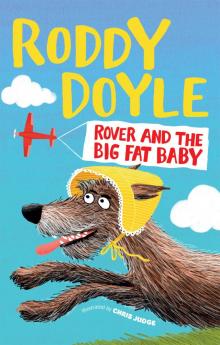 Rover and the Big Fat Baby
Rover and the Big Fat Baby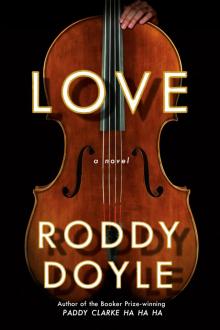 Love
Love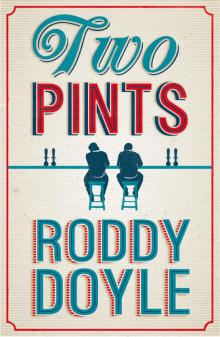 Two Pints
Two Pints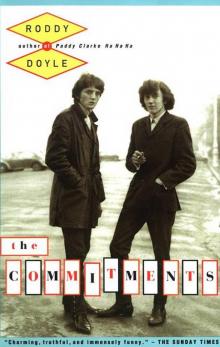 The Commitments b-1
The Commitments b-1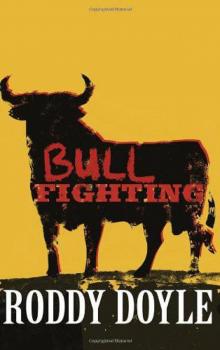 Bullfighting
Bullfighting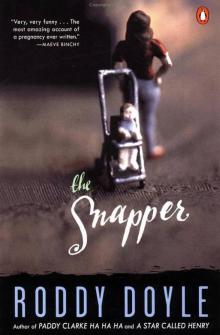 The Snapper b-2
The Snapper b-2